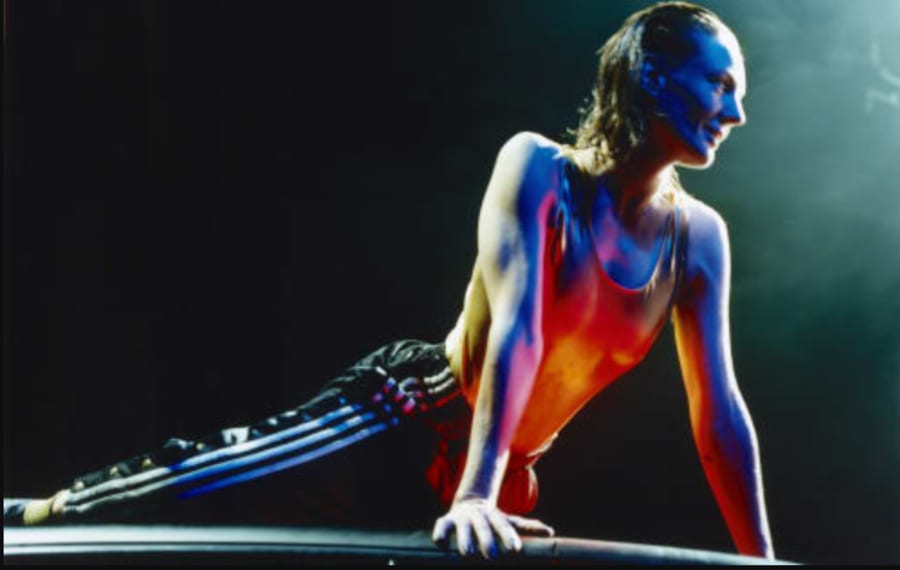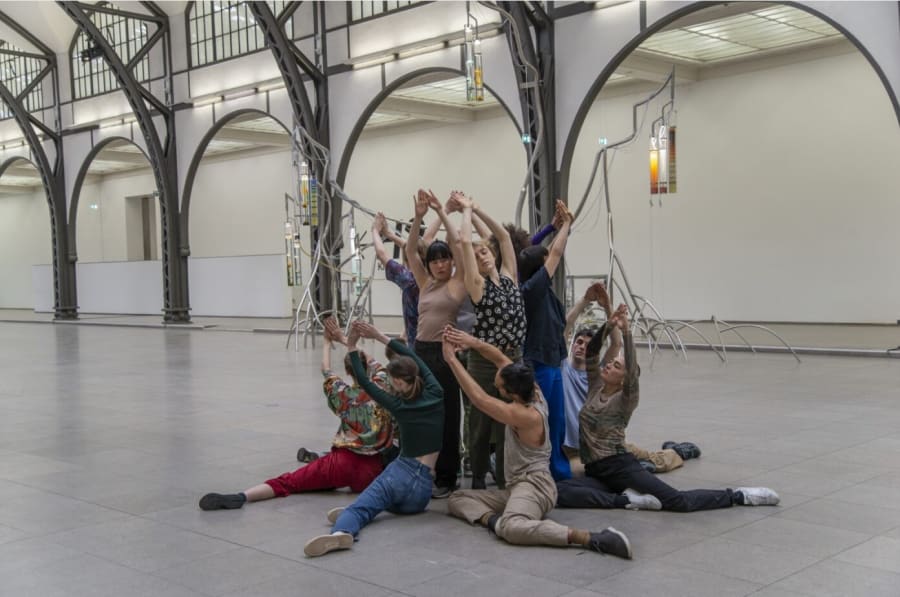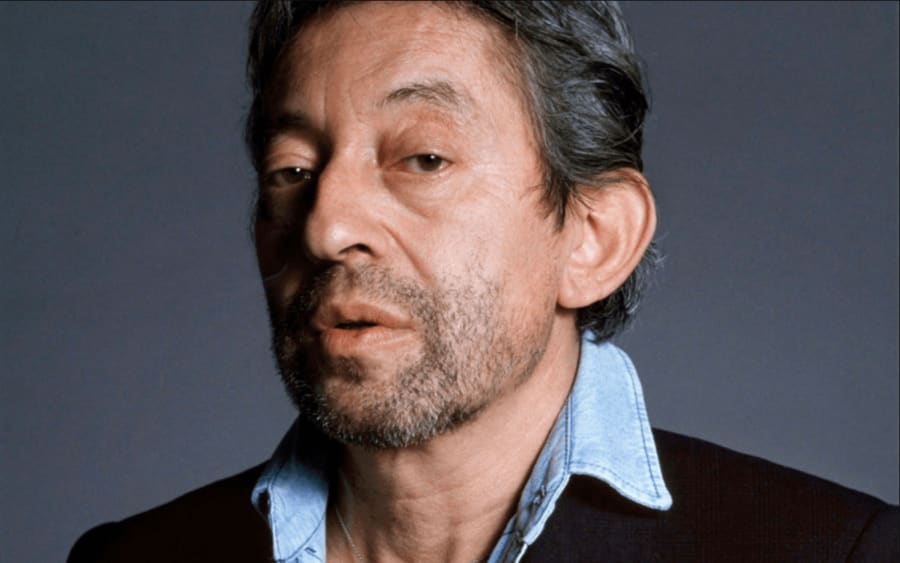Establishing the ‘Free Republic of Vienna’ is the rallying cry of this year’s Wiener Festwochen, the first edition of the Viennese cultural festival directed by Swiss theater director Milo Rau. A radical concept combining participative formats like hearings and public trials, Rau is bringing in productions that are both experimental and spectacular. Sancta, an opera by breakout Austrian choreographer and performance artist Florentina Holzinger, is an adaptation of German composer Paul Hindemith’s Sancta Susanna (1922), and includes a two-ton bell, a waterfall, and a half pipe. In conversation with Art Basel, Rau and Holzinger discuss the festival’s political aims, as well as their newfound love of opera.
This year’s festival marks a first for both of you. How would you characterize the Wiener Festwochen?
Milo Rau: The Festwochen is like an empty vessel into which you can pour all kinds of productions, from performances to exhibitions to really big operas, like Florentina’s. There’s total freedom. Vienna is interesting for me because the people there already know Florentina’s work, and they already know Hindemith too. Here are institutions, an audience, a city, and media industry that are already excited.
There certainly is a lot of expectation. Milo, you said in an interview that artistic directors come to Vienna to be executed.
MR: [laughs] Yes, everything is always met with opposition here. In Belgium, where I worked for a long time, it’s so much gentler and people are more tolerant. It’s not like that here, but I’ve always liked it. I actually think the stahlbad [steel bath] of toxicity is great.
Florentina Holzinger: Yes, that’s the right attitude. For me, this is the first real Festwochen production. Part of the idea of the Festwochen is that there are huge and bombastic productions, as well as really experimental and challenging ones – ideally a combo of the two. As a form of theater, there is nothing more bourgeois than opera, so we are feeding the most profane things into this opera – in the musical sense, too. The Festwochen audience is just right for this.
How did you come to stage Paul Hindemith’s rather obscure opera Sancta Susanna, of all things?
FH: Our work has always been associated with a certain operatic quality, simply because people know that my team and I are maximalists. For me, opera was really hard to watch. But during my research, I came across the genre of the nun opera, and found that very attractive – it’s such camp material. I knew immediately that we would really enjoy performing as an order of nuns. And Sancta Susanna has the advantage of being only 25 minutes long. It was only during the process that I really fell in love with opera, and now I find it very, very exciting and just fucking crazy. It’s this abundance, but also the instruments, which have such a potential for madness.
Milo, with La Clemenza di Tito, you are bringing your very first opera production to Vienna. What has your experience been like?
MR: Exactly the same as Florentina’s: I was reluctant to go to the opera. But when you’re working in there, everyone has this highly professional attitude, a seriousness, and at the same time, strangely enough, there’s a diversity of people. At the dress rehearsal of La Clemenza di Tito, which is an opera by Mozart, I was walking through the opera house and everyone was singing in their rooms; downstairs you could hear the orchestra. It’s like an ideal world. A whole house just for this madness, to come together for three hours and then disperse again. Just incredible. That’s when I really fell in love with the opera.
FH: For me, the apparatus is quite difficult, for the kind of collaboration I’m used to. I haven’t even met the orchestra yet. They only come in at the very end, are presented with a fait accompli, and sight-read when they play. It would be cool to be able to rethink the structure, to put together an orchestra that can work with us throughout the whole process.
Sancta has a second act described as a mass, thus shifting from the storytelling of the opera into a more participative mode.
FH: The mass is an interesting structure because it is a real community event that is about the joy of sharing, of public confession, all things that are also important in pop culture. Dramaturgically, we’re really borrowing from Catholic liturgy. It’s about negotiations of suffering, up to the climax of the mass, the Eucharist, where the transformation happens, where someone sacrifices themselves for the sins of all.
Florentina, your performers usually appear naked. Does this nudity, the exposed body, play a different role in Sancta?
FH: The nudity – it comes up again and again. Even in the opera world, Sancta Susanna ends with the nuns stripped bare. However, for me it’s not so important per se; what interests us are these double standards, and the sexual repression of the church is one of the greatest. Sexuality is presented as something that only takes place in the home and between spouses. On the contrary, it is very present in the church, in this sacred space, where we are surrounded by naked bodies. For many Renaissance artists, religion was an alibi for erotic painting. Artists like Michelangelo wanted to paint kinky things and were paid for it by the Pope.
Ahead of its start, the festival is already producing debates with the so-called Council, which is part of the large-scale participatory project “Free Republic of Vienna”. So-called hearings are supposed to open up discussions on how production funds are distributed, or how artists can be more involved. How did that concept come about?
MR: On the whole, I asked myself: Why does a city have a festival, and what is the relationship between the city and an international festival? Now, we have this scandal about [French writer and Nobel Prize winner] Annie Ernaux and [former Greek minister of Finance] Yanis Varoufakis, because here in Austria they are being called anti-Semites by the right. But if you live in Belgium or France, or Greece for that matter, then it’s relatively normal to be able to criticize the Israeli government. But apparently this is forbidden in Austria, and suddenly you realize why internationality and locality clash so much. It’s the very reason we created the Council, where all kinds of people from all over the world, but also from all districts of Vienna, can come together and write the constitution of the festival.
FH: Well, I think it’s good to shake people up a bit, especially at the Festwochen, where everyone is always upset anyway. That’s what I like about Milo, there’s no fear of a certain kind of provocation. Vienna isn’t a city that you have to treat with kid gloves.
MR: Next year’s festival will be a lot quieter, emotional, small-scale. This year is just big chaos and scandal. People are wrong when they say that diplomacy is about slipping in slowly. You have to start at the top, brutally and blatantly.
Does this also describe your way of working, Florentina?
FH: Of course, it’s cool if it happens as a side effect, but it would be a waste of time for me to be busy trying to change structures. What is often seen as a certain denunciation of the status quo happens when we really exercise our freedom. In doing so, we take risks and make ourselves vulnerable. Putting our foot in our mouth has always been fun for us, because in the end, it was never that bad, and actually, it was a real liberation. This opera is an extreme experiment. I’m always happy when things can go wrong – if you’re open to failure, things can never go wrong, and that’s a recipe for success.
Wiener Festwochen runs May 17-June 23, 2024.
Kathrin Heinrich is an art historian and critic based in Vienna.
Published on May 15, 2024.
Caption for top image: Florentina Holzinger, Sancta (performance still). © Tammo Walter


